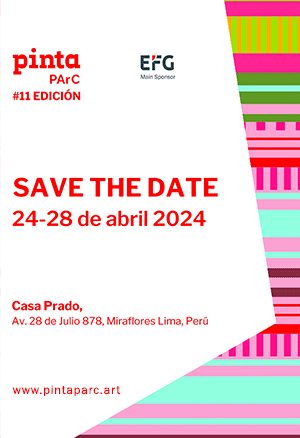PATRICIA CAMET QUESTIONS MASSIVE PRODUCTION PROCESSES
From damages -ecological, social, human, etc.- generated by the mass consumption system that currently prevails, Patricia Camet exhibits in PONCE + ROBLES a unique work. Composed of plastic waste, Emoticons x M2, the work of the Peruvian artist consists of more than 1300 objects grouped into small "communities" that evoke symbols.

Camet's work is characterized by reflecting on contemporary consumption habits and the effect this has on the environment and new forms of communication. Defined as an "archaeologist" of present, the artist makes an ironic and poetic criticism of this whole process.
The objects, hanging in an organized manner throughout the space, are made from garbage transformed into ceramics. In contrast to the industrial production process that Camet questions, the waste mutates to the new state through gypsum molds manufactured especially for each piece. Then, the artist intervenes again on the pieces endowing them with physiognomies and anthropomorphic emotions similar to the emoticons (used daily by the global community).
As Camet explains, these images are deformed, distorted and distorted portraits. In them there is disturbing, strong and confused resonance about the industrial world that we are going through.
These portraits made by the artist come from a world parallel to ours: non-recyclable objects that appear daily in our lives. Scissors, razors, egg cups, coolers, trays and containers are some of the objects selected and grouped by Camet as trace and X-ray of our process of civilization. From this, the use of the emoticon.
The construction of the word "emoticon" comes from the union of "emotion" and "icon". Thus, the icon replaces the object by giving it a new meaning. The wall, then, gathers portraits of a totally technological world.




